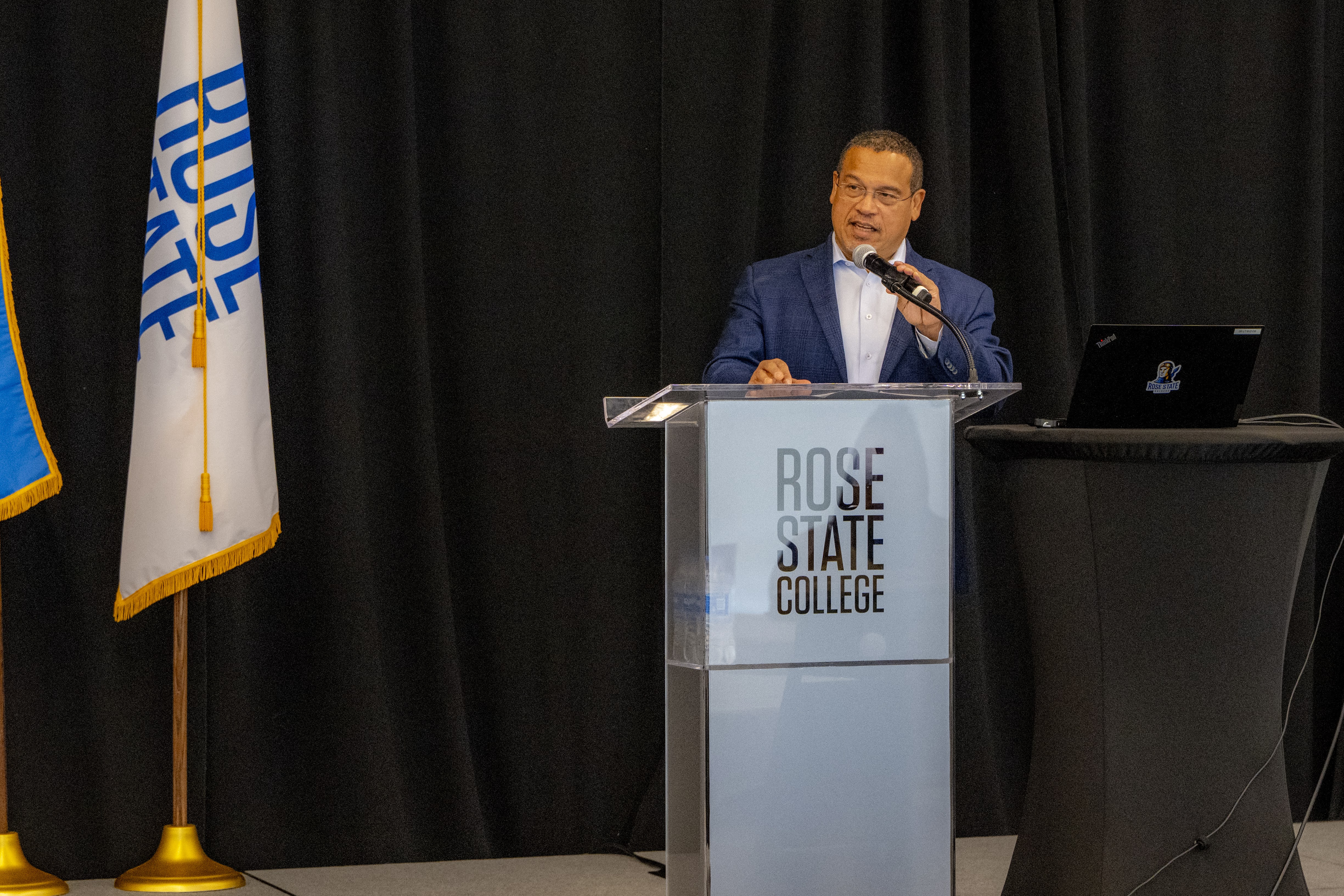Communication skills are essential in every profession, but writing in the health, business, and technological fields requires special skill sets, and Rose State College is committed to supporting the varied needs of these growing communities. The writing courses offered in these areas help students to both complete their college degrees and to successfully fulfill the responsibilities of communicating well in their specialized chosen fields.
In all courses for writing in the professions
- The class professor will provide early assessment of each student's placement in the course and refer students who need additional skills to the appropriate resources on campus.
- The professor will post the class syllabus in the electronic classroom associated with the course and will also provide regular private updates there of each student's grades progress.
- The professor will provide timely grading on assignments along with useful feedback.
- Students must take and pass the final exam under proctored conditions during the college's final exam period in order to pass the class
Technical Report Writing: ENGL 2053
Technical Report Writing is designed to assist students in developing skills exclusively for writing as professionals in the workplace, as distinct from academic settings. Emphasis in this course is on improving the written and oral communication skills of students seeking careers in business, technical, or scientific fields. Writing instruction will also include principles of collaborative writing, rhetorical analysis, research, documentation, and writing for digital media. Prerequisite: successful completion of ENGL 1113 or equivalent.
Students enrolling in this course should expect to learn how to do the following:
- Identify differences in style and technique that distinguish technical writing from academic writing
- Design effective technical documents for both print and digital media
- Produce documents that reflect appropriate and effective style, graphics, and design for both print and digital media
- Prepare and deliver an effective oral presentation
- Demonstrate the ability to work as a part of a team.
- Identify and implement appropriate research methods for each writing task to develop ethically responsible professional documents
- Write clear, concise, precise texts without grammar or mechanical errors
- Use a variety of technology to support online communication and the drafting of technical documents
Students' grades in the course will generally be determined by the following:
- 20% Four Business and/or Technical Documents from the following list: memos, letters, definitions, descriptions, instructions, procedures, summaries
- 20% Two Informal Reports, one informative, one analytical
- 30% One Professional Formal Report, which includes the following components:
- 20% Formal Report
- 5% Digital Media, which may include a blog, wiki, social network, web page, or online video
- 5% Project Presentation
- 10% Proposal, to include source review
- 20% The remaining credit for the course will include other work relevant to the course expected outcomes as the individual professor determines to be most effective. This work may include homework, in-class activities, draft workshops, technology workshops, participation, and professionalism.
Writing for Health Professionals: ENGL 1913
Writing for Health Professionals is designed to help students interested in careers in the health professions transition from college-level writing to professional communication in employment settings. The course exposes students to research strategies and writing conventions particular to the health professions in order to produce professional documents, including resumes, personal statements and review articles. The course covers the complex process writers need to learn to improve communication, including how to tailor information for specific audiences; how to use stylistic and visual devices to make information more accessible; and how to edit their work as well as that of their peers. Prerequisite: successful completion of ENGL 1113 or equivalent.
Students enrolling in this course should expect to learn and do the following:
- Explain how writing contributes to their development as health professionals and recognize the various roles that documents play in their particular fields
- Read and examine examples of medical research to extract important and relevant material and communicate that material to a variety of audiences
- Produce documents in a variety of forms common in health professions, such as case
- Study, research article, instructions to patients, personal statement, and medical review
- Recognize when and how to incorporate visuals into texts
- Modify documents to address the needs of a variety of audiences, such as patients, colleagues, and the public
- Prepare and deliver an effective oral presentation
- Demonstrate the ability to work as a part of a team
- Identify and implement appropriate research methods for each writing task to develop ethically responsible professional documents, document research accurately, and evaluate texts for adherence to standards of ethics and reliability
- Write clear, concise, precise texts without grammar or mechanical errors
- Use a variety of technology to support online communication and the drafting of technical documents
Students' grades in the course will generally be determined by the following:
- 5% Comparing Health Facts to Media Reports
- 10% Annotated Bibliography
- 15% Literature Review
- 10% Pamphlet
- 10% Patient Instructions
- 5% Reporting Health Information
- 5% Public Health Campaign Proposal
- 5% Public Health Campaign Presentation
- 10% Personal Statement
- 5% Resume
- 5% Cover Letter
- 15% The remaining credit for the course will include other work relevant to the course expected outcomes as the individual professor determines to be the most effective. This may include, but is not limited to, discussions, homework, quizzes, attendance, and participation.




